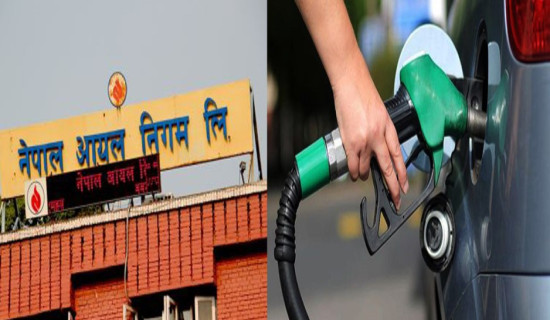- Sunday, 1 March 2026
Modi's Lumbini Visit Cultural Connectivity Boosts Ties
Narayan Upadhyay
Indian Prime Minister Modi landed at the sacred soil of Lumbini on the Buddha Purnima day, bringing his attempts to reset his country's age-old socio-cultural, economic and diplomatic ties with Nepal to the fore. Just before flying to Nepal, he stated his Lumbini visit would boost age-old strong relation, based on shared cultural heritage, with Nepal. Prime Minister Modi's frequent visits to the Himalayan country are motivated by a cultural link that has existed between two closest neighbours for centuries. It has grown further after he laid emphasis on the building close ties with all neighbours through his 'Neighbourhood First' policy that he envisaged in 2014.
Having flown from Kushinagar, where Siddhartha attained Mahaparinirvana, Prime Minister Modi's arrival on the auspicious occasion of Buddha Purnima, the day when Lord Buddha was born, enlightened and achieved nirvana after death, has brought Lumbini to the notice among the half a billion followers of Buddhism around the world. Later on the day, the two sides agreed on principle to establish sister city relationship between Kushinagar and Lumbini.
In his fifth visit to Nepal since he took power in 2014, and the first after he was re-elected in 2019, PM Modi became the first India premier to visit Lumbini, the birthplace of Siddharth Gautam. He is amongst a few heads of governments in the world to have offered prayers in Lumbini, a UNESCO heritage.
Powerful message
His arrival at the Lumbini garden, where Gautam Buddha was born, and his offering of prayers at the famous Maya Devi Temple disseminated a powerful message that India under Modi wants to deepen relationship with Nepal by augmenting cultural connectivity. During the visit, India 'gifted' India International Centre for Bouddha Culture and Heritage, to be built in the monastic zone of Lumbini. The building will be a net zero emission, the first of its kind in Nepal.
His attendance to prayers along with his Nepali counterpart at the holy site will immensely boost tourism in Lumbini and help dispel misinformation regarding the birthplace of Buddha. Many people around the world wrongly believe that the Buddha was born in India. India and Nepal also agreed on and exchanged letter of six understandings that included understanding between Buddhist University and Indian Council for Cultural Relation (ICCR) and Tribhuwan University with the Chennai based Indian Institute of Technology.
The Indian premier recommended that India and Nepal should build a Buddha circuit connecting Buddhist heritages of India and Nepal such as Bodhgaya, Kushinagar and Sarnath and Lumbini and many other places. Indeed, connecting these heritage sites will assist the Buddhist pilgrims and heighten the importance Buddhist sites of both nations in the eyes the Buddhism followers. If both nations build such a circuit, then the shared cultural link between the two nations would become permanent.
This is not the first time that the Indian Prime Minister has visited a holy place of Nepal. He visited the Pashupatinath in Kathmandu and Ram Janaki Temple in Janakpur and Muktinath Temple in Mustang on different occasions. It is also believed that during his youthful days, Modi had spent considerable times in the Nepali Himalayas, known in Hindu scriptures as the land of Hindu sages, to attain spiritual bliss.
Many Nepali government heads have paid visits to holy Hindu shrines in India. About a month ago, Prime Minister Sher Bahadur Deuba and his spouse, visited Kashi Vishwanath Temple received blessing apart from other temples in Varanasi of India. Many of our high-level dignitaries go religious sites for offering prayers at different occasions. The visits of two prime ministers to each other’s' holy shrines not only boosted the cultural ties between the two but also promoted religious tourism in these places.
In the meantime, Modi's arrival to Lumbini has highlighted that Nepal and India ties returned to right course. Relationship between the two nations worsened during the tenure of former Prime Minister KP Sharma Oli following his dispute with India over the claim of Nepali area in the Kalapani area. However, after PM Deuba took to the helm, high-level exchanges and visits resumed between the two close neighbours. Deuba paid official visit to India in April this year during when he invited PM Modi to visit Lumbini, which the later reciprocated.
India and Nepal enjoy strong bonding in other spheres, too. They include utilisation and sharing of Nepali water, building hydropower plants, transmission lines, road networks, petroleum supply as well as providing markets to the Nepali products in India and to the third countries through its ports and transportation sectors. India provides billions of rupees in grants to Nepal in the health and education sectors. The Lumbini visit also saw five agreements including a MoU about constructing the Arun-4 Hydropower Project between Nepal Electricity Authority and India's Satalaj Hydropower Corporation. Nepal will receive 159 megawatt of 679 megawatt produced by this project.
Outstanding issues
Despite all this, Nepal has some outstanding issues with India. Nepal wants to settle all kinds of border problems and issue related with the treaty of 1950 with India, EPG report, flood control and its water management. India, being a bigger and powerful neighbour, must respond to the urges of Nepal. When it comes to India's interests in Nepal, they pivot around three things - security, economic and water resources. India is conscious of fulfilling these interests. At present India can no longer work alone to fulfill these interests. It must seek the support of its small neighbour, which is a sovereign nation.
Many Nepalis and Indians want to see Modi's visit to spread the message that there is no dispute between Nepal and India. For this, Nepal should also show mature diplomatic tact. If India shows a liberal attitude, whatever tension has existed between the two nations regarding some bilateral issues will go away.
(Upadhyay is Managing Editor of the Daily)
















